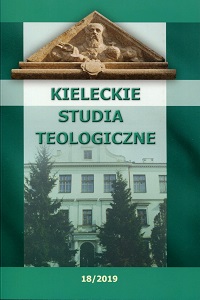Geneza nurtu Nouvelle Théologie
The Origin of the Nouvelle Théologie Movement
Author(s): Daria ModroSubject(s): Christian Theology and Religion
Published by: Wyższe Seminarium Duchowne w Kielcach
Keywords: nouvelle théologie; new theology; renewal movement; Second Vatican Council; neo-tomism; Lyon-Fourvière; Le Saulchoir; modernism; Jesuits; Dominicans; French theology; alfred Loisy; Johann adam Möhler;
Summary/Abstract: the movement for renewal of theology referred to as Nouvelle Théologie was born in France in the early twentieth century and contributed to the reforms of the Church resulting from the Second Vatican Council. Some of the representatives of this current in France were the Dominicans of the Le Saulchoir center and the Lyon-Fourvière Jesuits. the proliferation of the movement dates back to the 1940s and 1950s. the representatives of the Nouvelle Théologie current strived for a broadly understood theological renewal through a return to the sources. their reception of the writings of the Church Fathers evoked a critical judgment of the errors of neo-tomism, which – in their opinion –- has led to a rupture between theology and the ordinary man. new theologians have turned to the modern man, focusing on his doubts, problems of faith and suffering. the origins of the movement can be traced back to the birth of modernism, as well as the philosophical thought of Johann adam Möhler, Maurice Blondel, Joseph Maréchal and Pierre rousselot.
Journal: Kieleckie Studia Teologiczne
- Issue Year: 2019
- Issue No: 18
- Page Range: 129-146
- Page Count: 18
- Language: Polish

